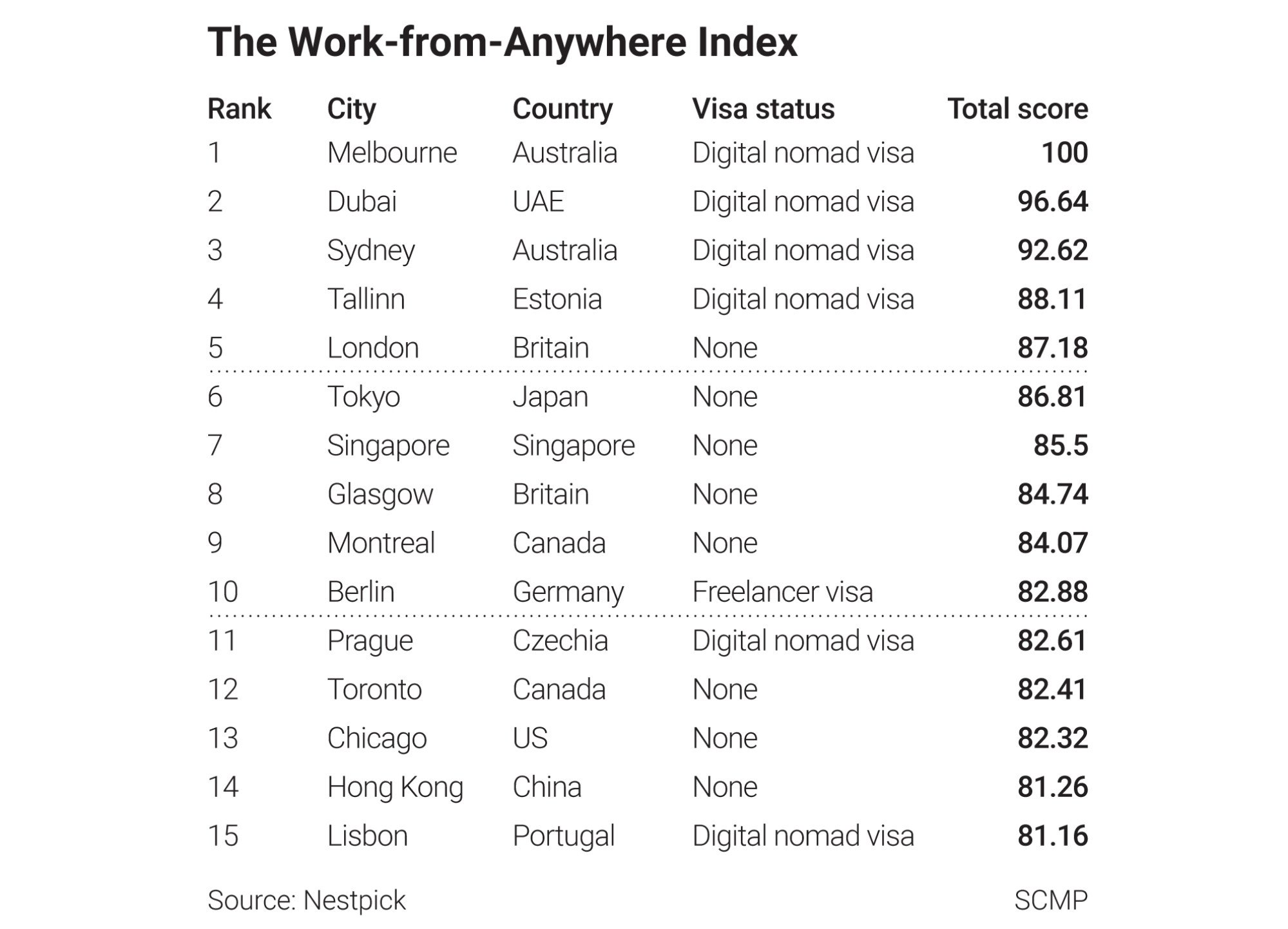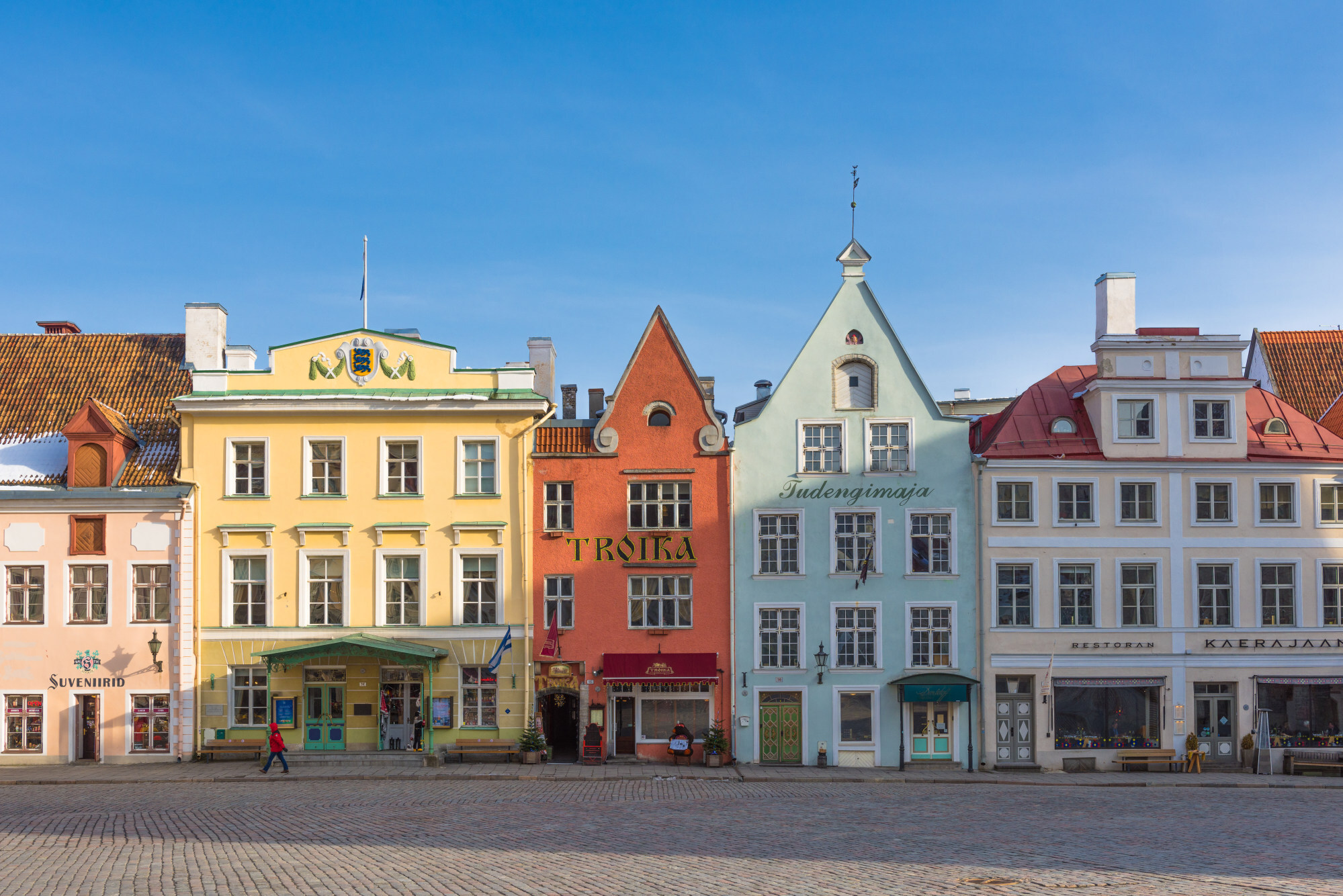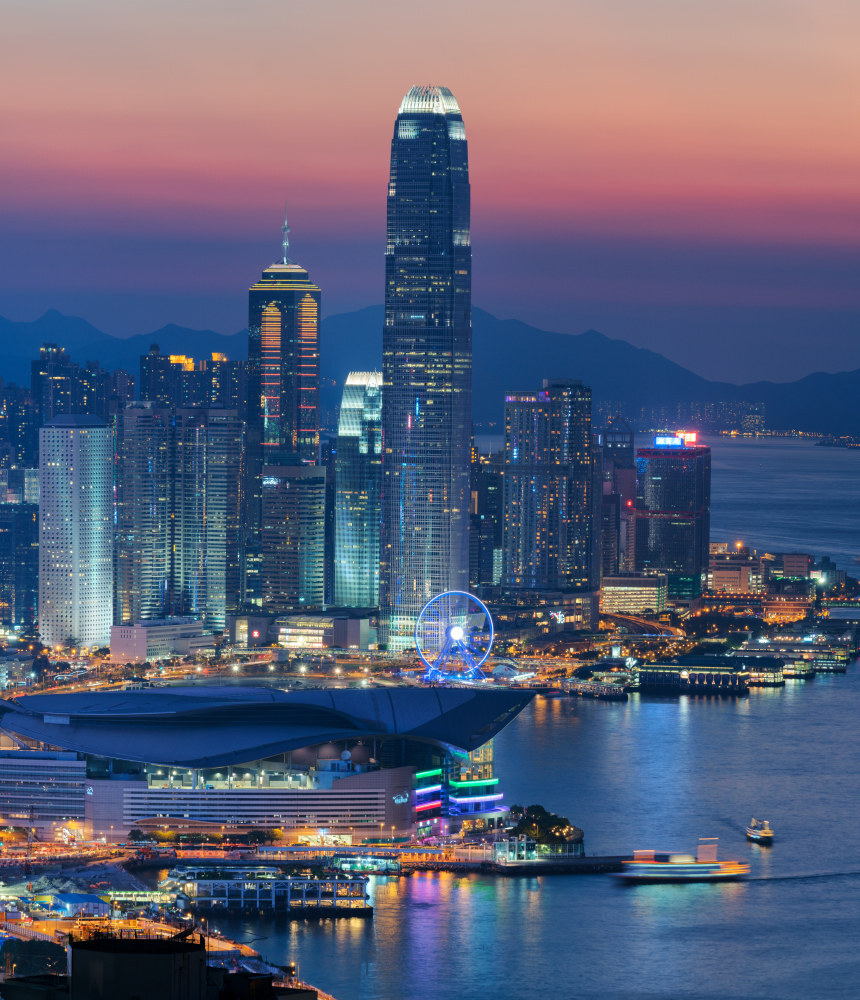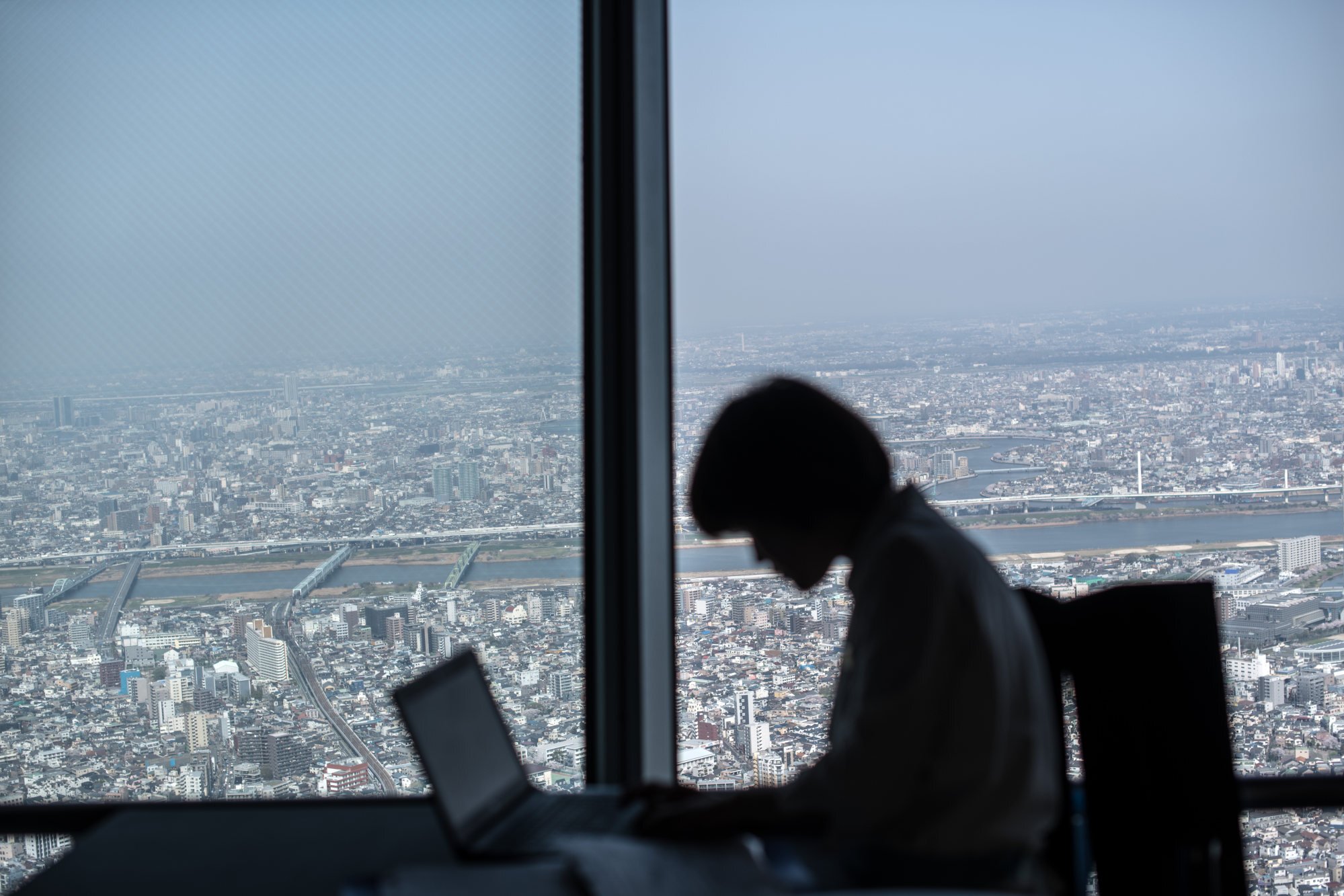
Ranked: cities best equipped for digital nomads after the pandemic – Melbourne, Dubai, London and Singapore in top 10, Shanghai near bottom
- 75 cities ranked on their suitability for remote working based on costs, infrastructure, laws, freedoms and liveability. Some Asia-Pacific cities rate highly
- With remote working forecast to increase, governments that move quickly to offer visas friendly to digital nomads could draw high earners, survey’s author says
Is the location-centric approach to working on the wane? Covid-19 restrictions have certainly forced many people to work from home, but some have been living and working remotely for years.
These so-called “digital nomads” favour places such as Bali, Indonesia, and Chiang Mai, Thailand, for their low cost of living and social-networking opportunities.
With international travel gradually opening back up as national populations become vaccinated, would-be digital nomads may be wondering which city is best equipped for remote workers.
That would be Melbourne, Australia, according to a new study by Nestpick.com, a Berlin-based on-demand furnished-housing platform.
In the Philippines, digital nomads flee virus-hit Manila for deserted tourist towns
The study assessed 75 of the world’s “most liveable” cities for their suitability when it comes to remote work, taking into account 16 factors under the group headings “costs and infrastructure”, “legislation and freedoms” and “liveability”.
“We decided to investigate which cities are not only the most attractive and welcoming to foreigners, but also have the infrastructure and legislation in place to make it easy for remote employees [domestic and/or foreign] to live and work there,” explains the survey website.

Melbourne, known for its cafes, ranked No 1 overall despite coming in the top three for just two individual factors (“gender quality” and “culture and leisure”). Australia’s garden city is, however, covered by the country’s working holiday visas (although they are available only to 18 to 35 year olds from certain nations).
Dubai, Sydney, also in Australia, and Tallinn, in Estonia, placed second, third and fourth in the study, and also benefit from visa conditions that allow foreigners to work remotely without additional permits.

However, of the 75 cities ranked in the “Work-from-Anywhere Index”, only 10 are covered by specific digital nomad visas (including Australia’s working holiday visas) - the others being Athens in Greece, Lisbon in Portugal, Mexico City, Prague in the Czech Republic, Reykjavik in Iceland and Zagreb in Croatia - and it’s possible to work in a few of the other cities, primarily in Germany and Italy, on a freelancer visa. It’s a reminder that, in most places and cases, the ‘digital nomad’ lifestyle is illegal.
“People can attend to work matters while on a tourist visa, but actually working and living in a city permanently means you must make the requisite legal contributions,” says Omer Kucukdere, founder and CEO of Nestpick. “If you are not doing this, you are technically breaking the law – not only immigration law, but also tax and other contribution laws.

Some Asian destinations are already experimenting. Indonesia is currently looking into offering a five-year visa that would enable foreigners to live and work in the country without a work permit. Bali (which, for this index, Nestpick counts as a “city”, and places surprisingly low at 56th), in particular, has been badly hit by the drop in international tourism.
Asia has historically been looked on favourably by footloose workers, and among its 75 surveyed cities, some Asian metropolises are deemed very appealing by Nestpick.

“Despite not having digital nomad visas, Tokyo and Singapore excelled [in the rankings],” said Kucukdere. They placed sixth and seventh overall, respectively, despite high rents for home offices.
What about Hong Kong, which ranks as 14th in the index?
“Hong Kong stands out with its low personal income tax rate and strong internet infrastructure,” said Kucukdere. However, the city was ranked among the most expensive for office room rent and cost of living, and among the worst for air, noise and light pollution.
High earners are leaving business-focused cities to live in places that offer better day-to-day lifestyles, taking their purchasing power with them
Chiang Mai sits at No 34 in the list, while the worst three of the 75 cities assessed for this study are, in descending order, Shanghai, China, Marrakech, Morocco, and Medellin, Colombia, where the introduction of a digital-nomad visa has been announced.
What conclusions can be drawn from the index?
“What we’ve seen through our study is that technology and employers have moved faster than infrastructure, with many legal barriers still in place for migrants who want to bring their job with them,” said Kucukdere.

Post-pandemic, governments who move quickly to offer digital-nomad-friendly visas may receive early-mover benefits.
“High earners are leaving business-focused cities to live in places that offer better day-to-day lifestyles, taking their purchasing power with them,” said Kucukdere. “We will see more cities adapting to these new working conditions, and benefiting from the economic boost that these workers inject into their economies.”

